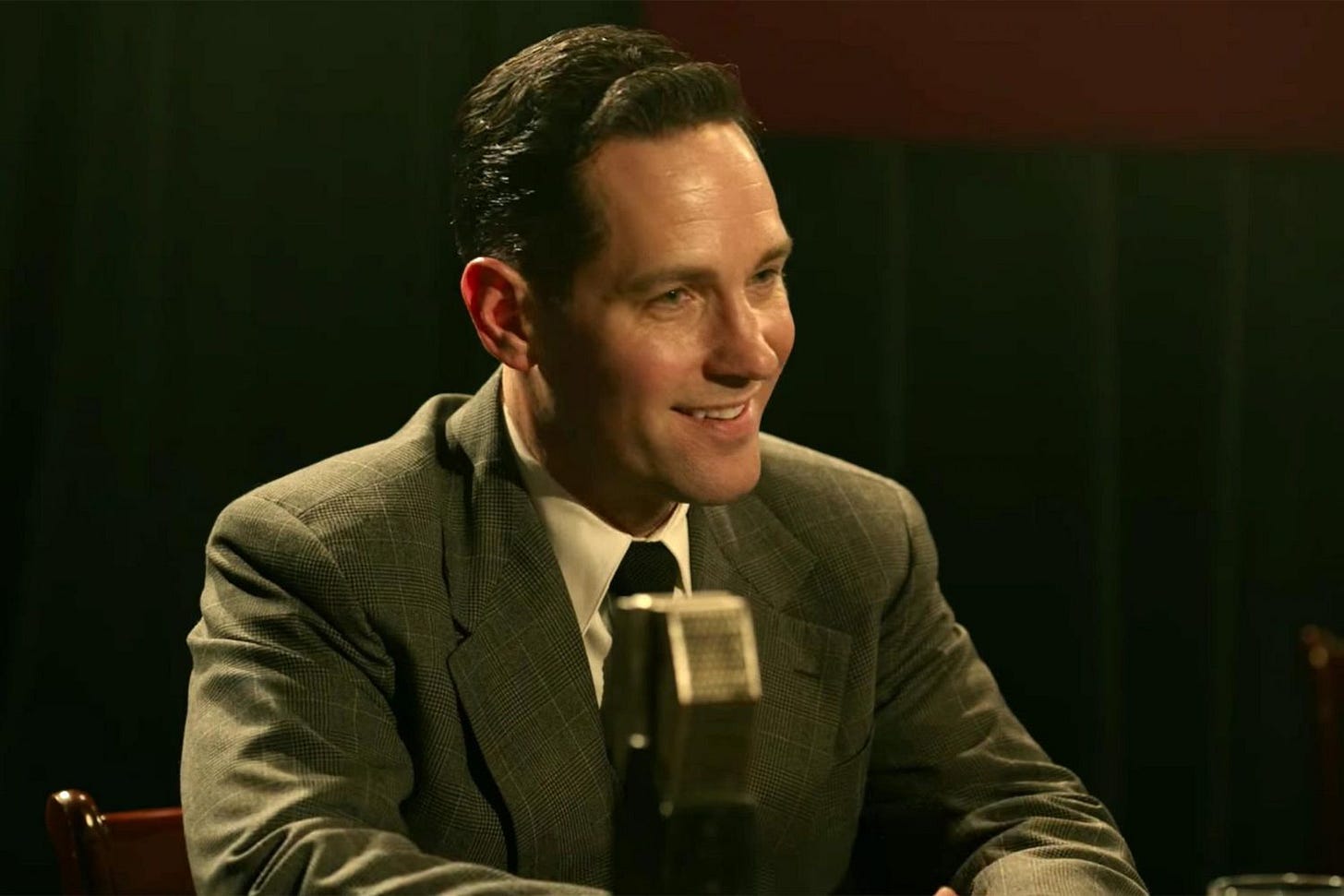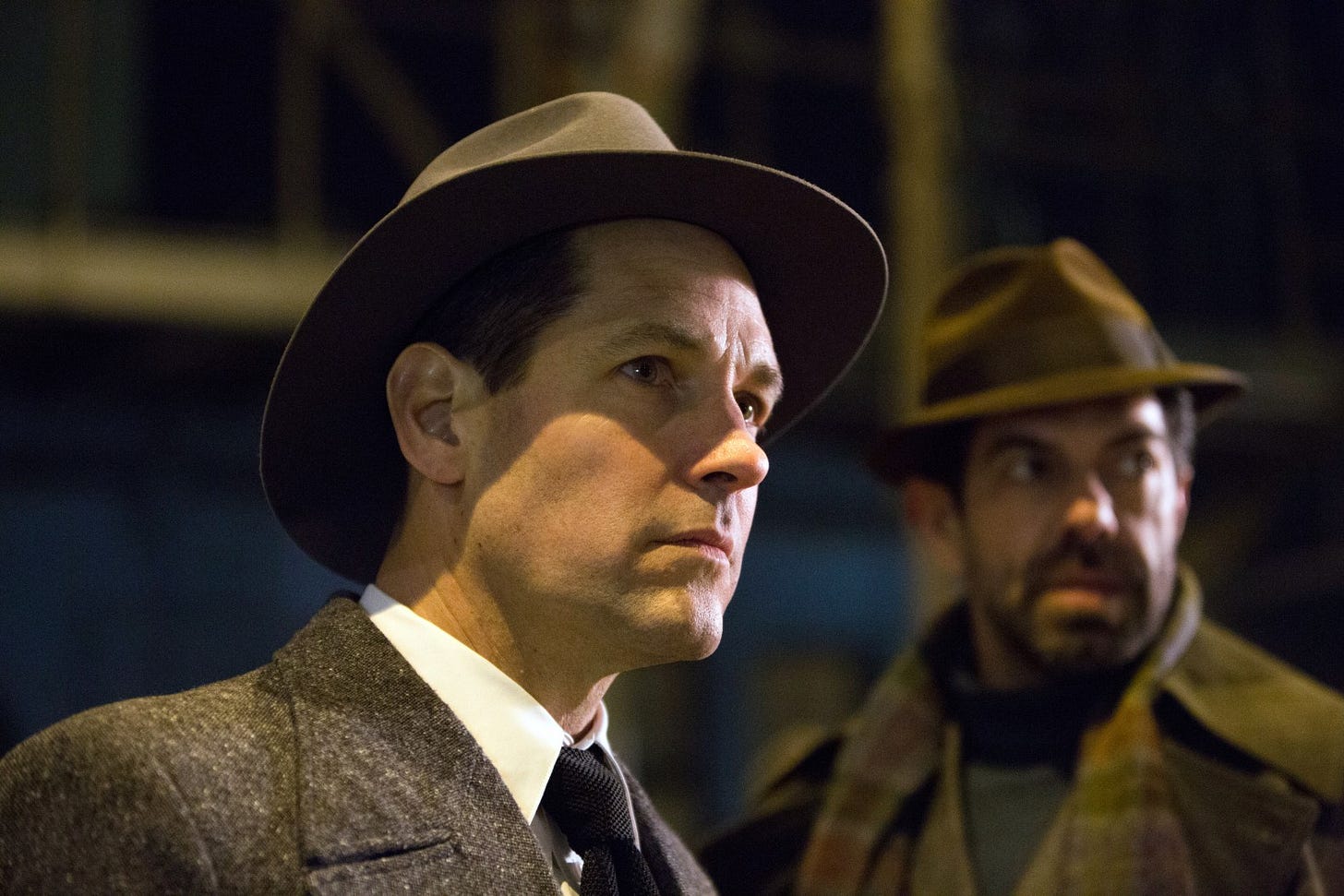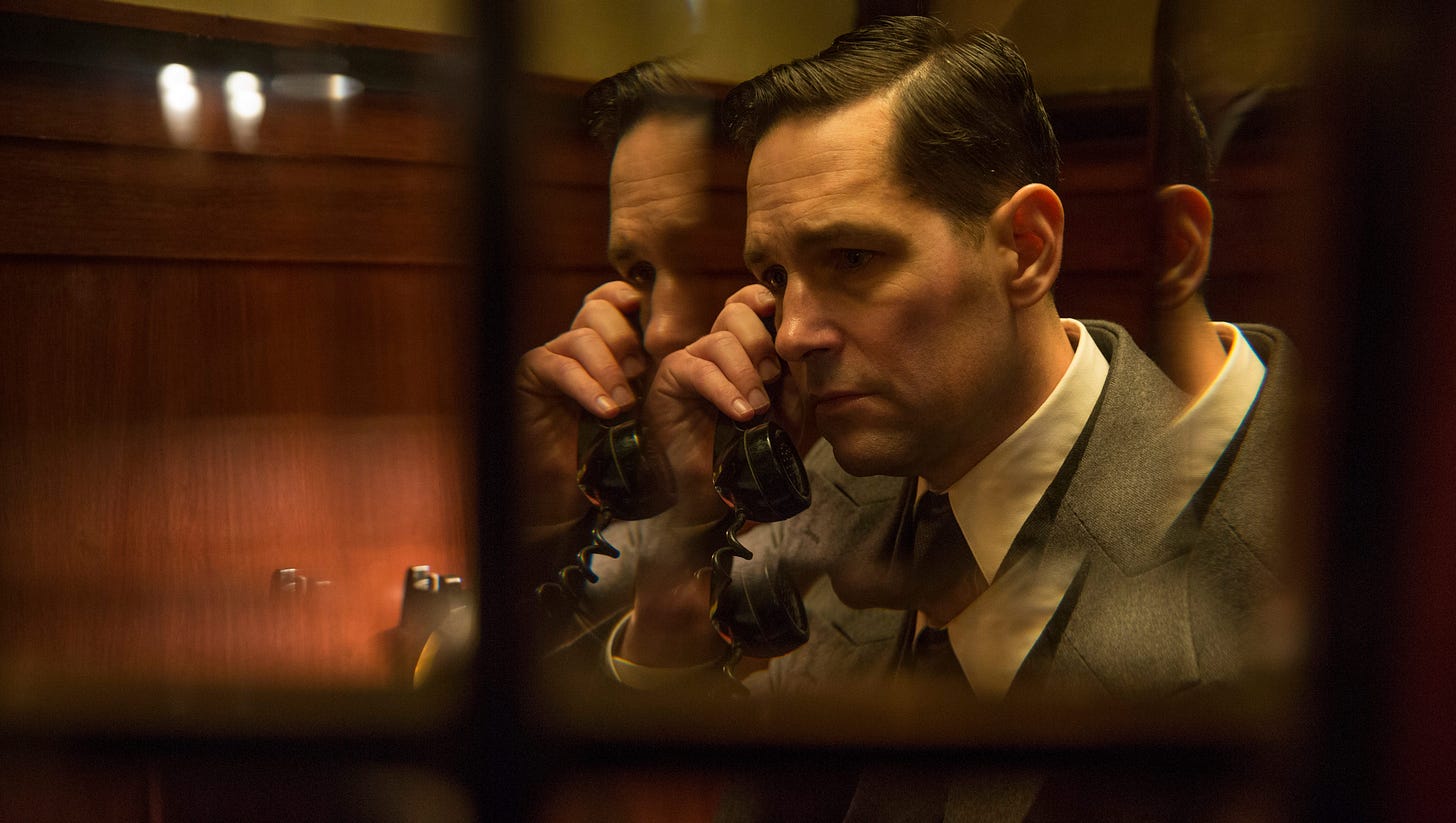This Ben Lewin film, adapted from the nonfiction book by Nicholas Dawidoff, tells the curious story of Moe Berg. Moe Berg was an extraordinary person, and you could say that with only a cursory reading of his resume: he was a major league baseball player who spent fifteen years as a catcher, a tremendously challenging and physically-demanding position. What was revealed much later is that his own idiosyncrasies that isolated him in the clubhouse – his love of different languages, his affection for literature, his awareness of global events – led to him being recruited for spycraft on behalf of the US government.
Berg was selected to accompany a group of baseball players in the 1930’s on a barmstorming tour of Japan. He was an odd fit – despite his long career, he was never a decorated player. His best year had him recording 47 RBI, by far a career high. Berg’s inclusion on this team alongside superstars raised eyebrows, though his hopes were to obtain surveillance of the Tokyo shipyards. The film depicts this trip and the ensuing recruitment to spy on a Nazi scientist. But with minimal tension, it’s depicted as a wouldn’t-this-be-nice travelogue across the world peppered with appearances by a murderer’s row of character actors, including Paul Giamatti, Shea Whigham, Connie Nielsen, Jeff Daniels, Hiroyuki Sanada, Tom Wilkinson and Guy Pearce.
The movie, like the heavily-researched book, tells an improbable and fascinating story. Unfortunately it deserves a more insightful, perceptive presentation than this. This extremely well-cast film falters due to Paul Rudd’s stagnant performance as Berg. Ignoring the fact that he looks nothing like the actual Berg (who resembled “Wonder Years”-era Dan Lauria), Rudd gives a performance that suggests he hasn’t properly interrogated Berg’s interior self, and his characterization feels only surface level, to the point where in the film’s third act, we’re still learning seemingly-contradictory things about this private person. Berg was juggling the skill of a baseball player, the knowledge of spycraft, and the notion that he must have a practiced double life, all while maintaining a healthy intellectual curiosity towards the world. I’m not saying Rudd can’t play a genius, but his Berg seems remarkably less distracted than someone like Berg should be. For all his bonafides across various media, Rudd often can’t do sincere.
Curiously, the movie focuses considerably towards one of the later chapters of the book. Dawidoff took a thorough and nuanced look at Berg’s life that relied on several sources, but late in the story he acknowledges the rumor that Berg was a homosexual. Dawidoff seems dismissive of the notion, while also acknowledging all the “he was a private man” rumors pointed in one pretty specific direction. He only tackles this notion begrudgingly, respectfully dismissing not the possibility, but the idea that it is more than speculation. The movie never explicitly takes a stance on his sexuality either, but insists on several scenes of overt homoeroticism to suggest Berg was at war with his own desires.
Lost within all this is my thought that spycraft, in a male-dominated world, involves a lot of engagement that, after a while, can certainly seem like flirtation. I’m heterosexual, but if I were a spy for such high stakes situations, I’m sure I’d come across as possibly gay too. There is so much that fascinates about Berg, but the movie presumes that alleged and never proven homosexuality is one of the more intriguing elements of his life. I’d have to disagree, particularly considering it’s speculative. It’s an added performative layer in a movie with no shortage of performative layers to explore.
Lewin’s storytelling feels as if it’s desperate to uncover a hidden layer of more traditional suspense. Berg is depicted as a private person, and an introvert. But too often, the narrative asks him to behave in extroverted ways. Rudd had his “Ant-Man” physique when he made this movie, but a scene where he has to physically confront someone who would reveal his cover reads as deeply unconvincing. And, perhaps to remind people this is technically a war film, there is a competently-directed sequence on the battlefield that proves to be a distraction to Berg’s story, an overeager attempt to illustrate what Berg’s spycraft is trying to avoid.
Also a disappointment about “The Catcher Is A Spy”? Not enough baseball! What’s funny is that, in prison, there was never a shortage of baseball. In one institution, we had a full baseball diamond, actually quite gorgeous. They let us take out gear during recreation periods – yes, we were allowed to have bats! The teams would be set up according to your designated “car” and almost everyone would be allowed to play. Softball only, though, so it would be the equivalent to a beer league. But yes, it wasn’t always bad when you were down.
These games almost never went the distance. There was a team of sex offenders, and if anyone was losing to the sex offenders, they would throw fits and quit. Other games would collapse into disputes and disagreements, with everyone screaming to replace the pitcher. Basically, they’d slap the ball around until there was no longer any interest in the game. During the game, of course, is when transactions would be made in the stands, a good-enough cover if there was one. It wasn’t exactly the place to be. But a baseball diamond was always preferable to the cells.







